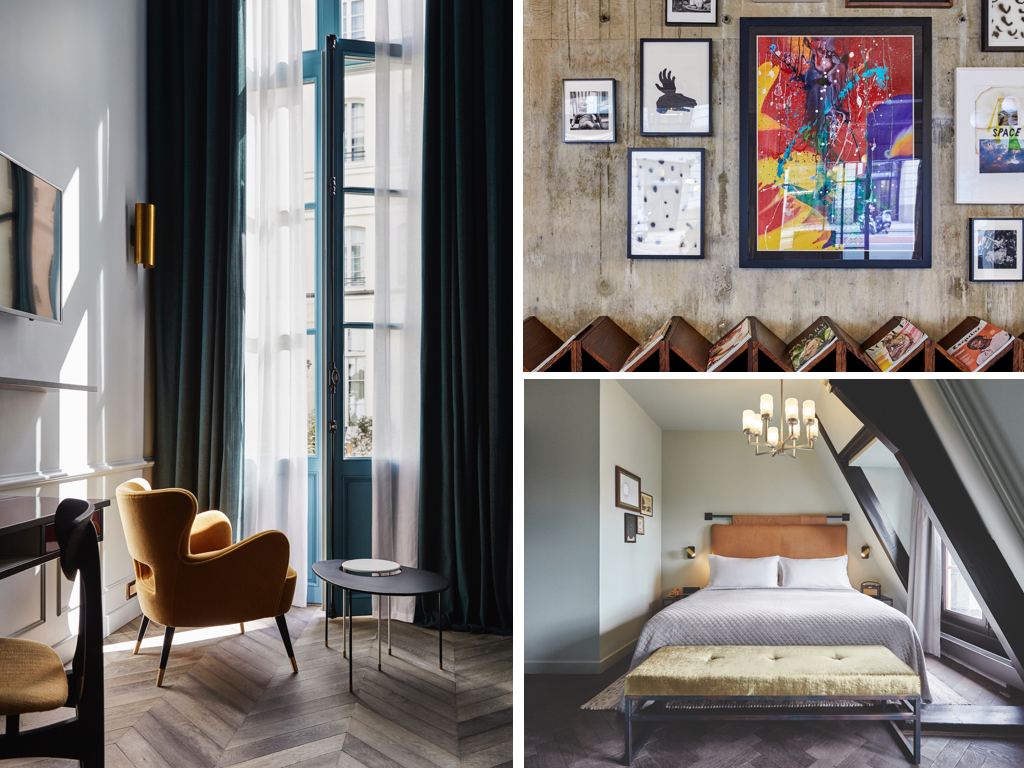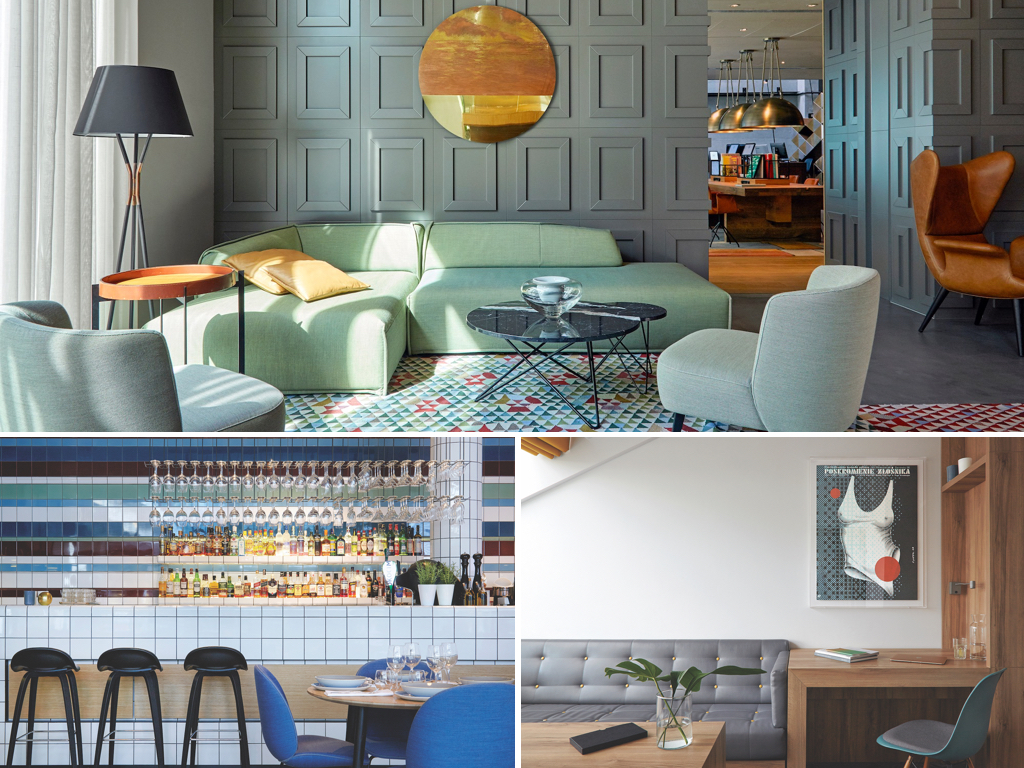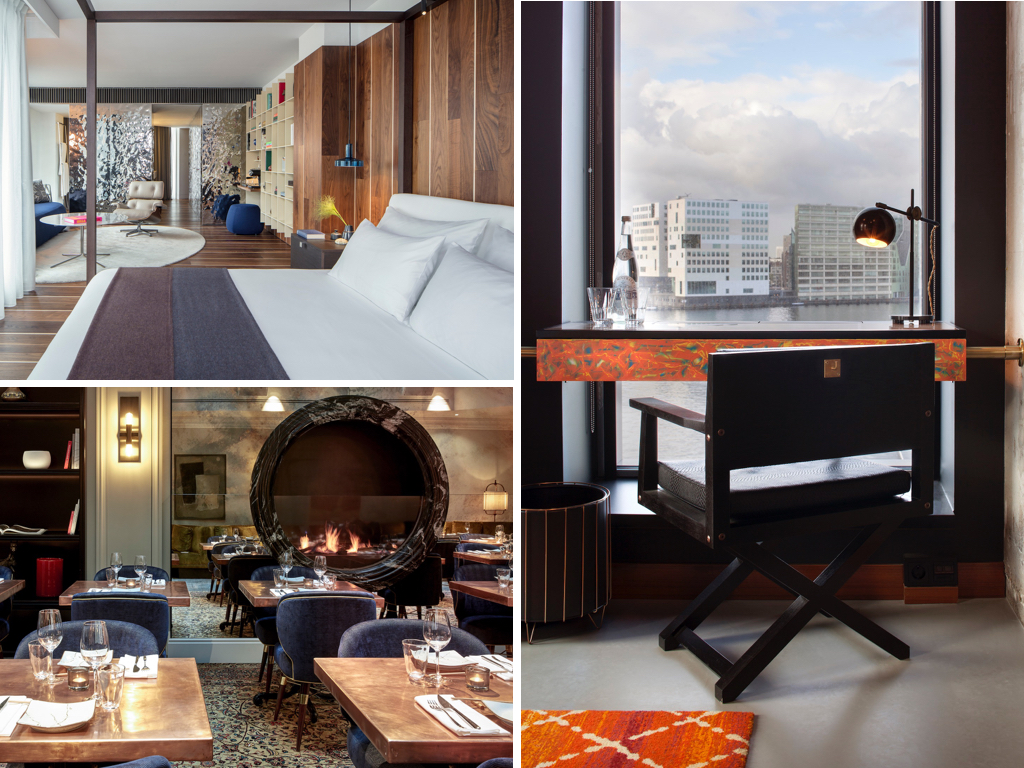Centuries before hotel monoliths developed faceless iPad check-ins and room service summoned via smartphone app, inns were IRL social networks—meeting houses for great minds and think tanks for big ideas. Eisenhower and Churchill secretly stewed over World War II together at The Olde Bell, built in 1135 in Hurley, England, while Tyrolean artists chatted with Goethe at the circa-1390 Goldener Adler, in Innsbruck, Austria. Times have certainly changed, but a few European boutique groups are channeling some of that essence, eschewing the dispassionate model in favor of more intimate experiences and singular design meant to encourage guests to linger and mingle. “Hotels are historically flex spaces—not quite home, not quite work—which means they operate on this dynamic scale,” says Caroline Levander, a humanities professor at Rice University who co-wrote the book Hotel Life: The Story of a Place Where Anything Can Happen. “This new trend of hotels that are completely unique and unreproducible is so bespoke, so deeply personalized.” Here, three emergent brands capturing our attention.
These Boutique Hotels Act Like IRL Social Networks
Three European brands bring intimacy, idiosyncrasy, and connection to the luxury hotel experience.
Three European brands bring intimacy, idiosyncrasy, and connection to the luxury hotel experience.
January 04, 2018

THE HOXTON
Each Hoxton hotel takes its cues from the neighborhood in which it resides—whether that’s Shoreditch, London, the Herengracht canal in Amsterdam, or Rue du Sentier in Paris’s Second Arrondissement. In partnership with Soho House and Humbert & Poyet, Ennismore Creative Studio fitted the latter property with a photogenic interior, restoring 300-year-old spiral staircases, original 18th-century tile-work, and exposed-timber beams in the fourth-floor ceilings. Like its sister locations, the property customizes on-site activations such as Studio Marant & Flash Design Store’s pop-up boutique, selling special-edition luggage and design objects, open through December. Expect Hoxton exports to cross the pond soon: an outpost in Williamsburg is set to open in Brooklyn in late 2017, with Chicago and Los Angeles locations soon to follow.

PURO HOTELS
Puro has been redefining Poland’s hotel scene since 2011, and now has four locations and counting—including in Poznań, Kraków, Wrocław, and Gdańsk, the latter opened in July. “Every hotel has its own personality and sense of place,” says cofounder and CEO Rune Askevold. “We focus on craftsmanship, and partner with lots of Polish artists and designers.” The new Gdańsk property is a warehouse-like new build inspired by the city’s 15th-century shipyards, with antique maps customized by area artists, hand-tufted rugs by Golran, and a spa with herbal products by Poland’s own Alba 1913—family owned since its eponymous year.

SIR HOTELS
Founder and owner Liran Wizman created Sir Hotels to be as specific to the region as possible. Take the Ibiza location designed by Baranowitz + Kronenberg and Ribas Architects, which nods to the yachts anchored offshore with warm woods and sea-weathered metals, or Hamburg’s industrial setting inside a rehabbed warehouse on the waterfront, by FG Stijl. (An outpost in Berlin and two in Amsterdam round out the portfolio.) “We build hotels that are locally inspired and become resources of local knowledge, providing guests access to the best the city has to offer,” he says. Point proven: each destination has its own Instagram-led city guide who sniffs out the area’s most insider-y finds, from organic wine bars in Amsterdam to secluded mud baths on the bays of Ibiza. There’s also an undeniable attention to detail, as evidenced by their amenities, which may include in-room Bluetooth Marshall speakers, floor-to-ceiling windows, rain showers, Gibson guitars, and—proof positive that they truly want guests to maximize their R&R on holiday—pillow menus.
